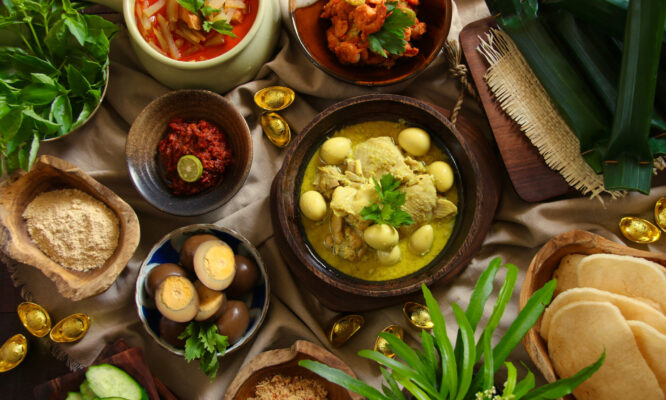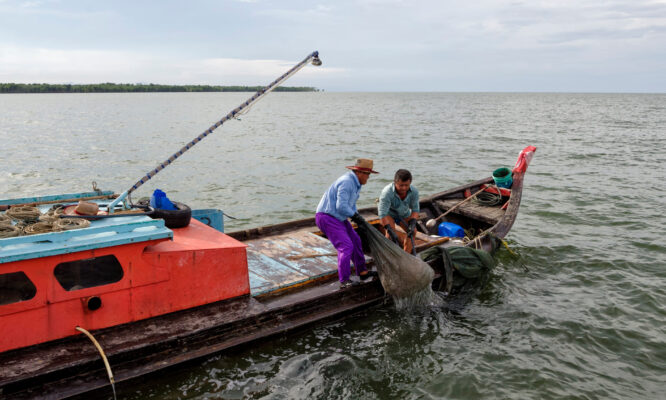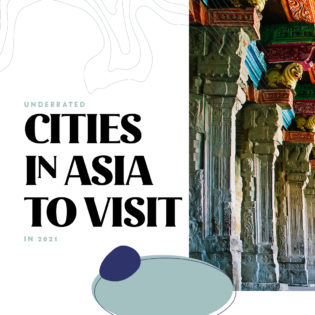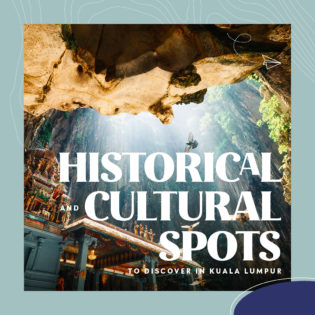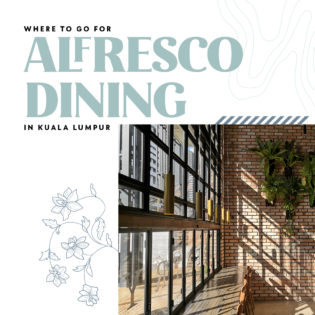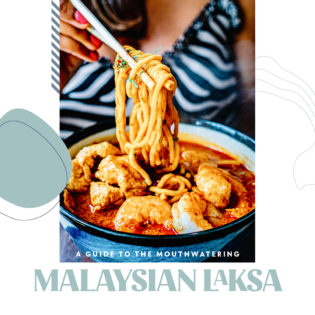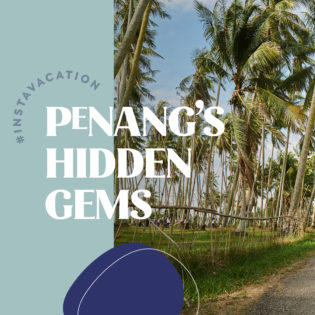Traditional feasts, inventive concepts and delightful sweets form Muscat’s greatest gastronomy finds
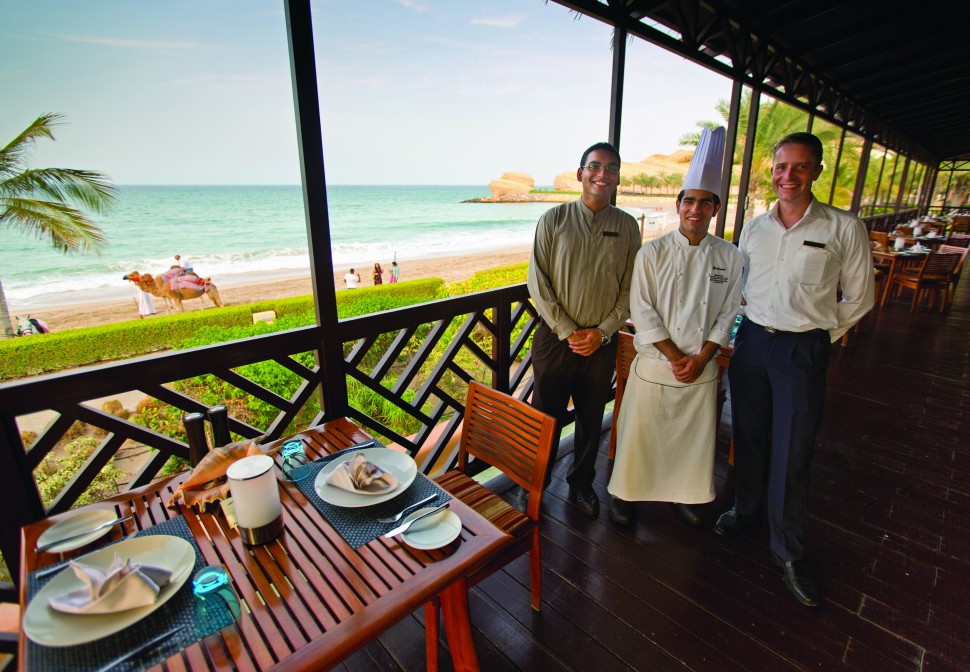
Arriving at an Omani home is like no other experience. Wherever you might be in this remarkably beautiful country, there’s one fundamental constant – coffee (kahwa) and dates. This mandatory welcome snack offers an insight into the nation’s philosophy: Omanis are incredibly hospitable and want to share their culture with the world. Luckily, food is a focal part of this.
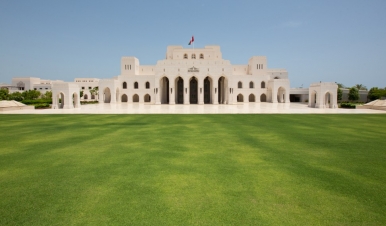
Fortunately for this sugar-loving nation, an excess of local treats can be found everywhere. Mosques often have rooms stocked with dates, while in marketplaces, vendors come prepared to share. It’s not unusual for a souk to have a central meeting spot with communal sweets that any passer-by is welcome to enjoy.
Sharing is a big part of Omani culture and extends beyond food and drink. Oman only opened up to Westerners in 1993; today, travelling to this exotic land still offers an incomparable experience. The capital, Muscat, is the first port of call for most, with flabbergasting sights.
There’s the magnificent Al Alam Palace with blue and golden pillars that glisten in the afternoon sun, the stately Sultan Qaboos Grand Mosque with its elaborate interior that includes the world’s second-largest hand-loomed Iranian carpet (it took 600 women four years to weave the 70 x 60 metre masterpiece), and the chaotic and pulsating Muttrah Souk, where it’s easy to roam for hours stocking up on all sorts of foodie delights.
Tasty Traditional Fare
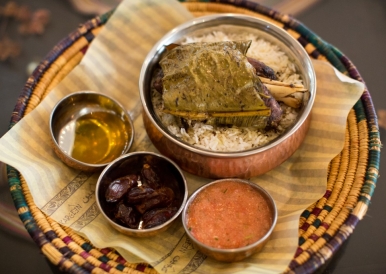
A flock of youngsters natter outside Kargeen Caffee (kargeencaffe.com), waiting for a table to free up. This is one of Muscat’s most popular restaurants, and it’s easy to see why. The tree-filled courtyard and interior are jam-packed with a crowd enjoying traditional Omani food amid charming surroundings.
Most tables start with Arabic-style mezze of creamy cheese, fresh vegetables, olives, homemade dips and breads. For the main course, almost everyone will order shuwa, a delicious slow-baked lamb dish. “This is absolutely our most famous dish,” chef Mohammed Abdullah Mohammed Yousuf says proudly. “The lamb is very succulent! We marinate it in cumin, turmeric, masala salt and apple vinegar, wrap it in banana leaves and then bake it for 48 hours in an underground firewood oven.”
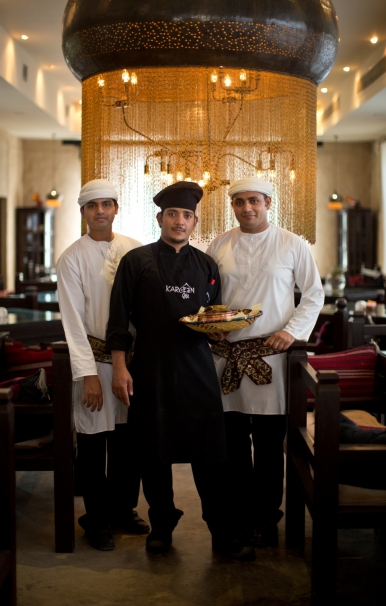
Because of the time and effort involved in cooking shuwa, traditionally the dish is only prepared for special occasions, but Kargeen Caffee is one of only a handful of restaurants in Muscat offering the dish cooked in the customary manner.
Waiters weave between tables with aromatic shuwa still wrapped in banana leaves, perched atop steamed basmati rice and served alongside dates, chutney and olive oil as guests’ eyes follow the servers, hopeful it might be theirs. “We probably serve 50 or 60 of these a day,” explains Mohammed Abdullah.
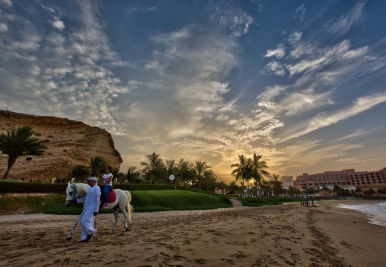
Although lamb is very popular with Omanis, fish also commonly makes appearances; the best seafood restaurant is on the outskirts of Muscat in its own serene oasis. The Shangri-La’s Barr Al Jissah Resort & Spa complex is made up of three different hotels and feels as if it belongs in another world. Strolling along the resort beach or through the grandiose complex is part of the attraction, and ending up at Muscat’s finest seafood restaurant, Bait Al Bahr (shangri-la.com/muscat/barraljissahresort/dining/restaurants/bait-al-bahr), for dinner is a divine way to spend a night.
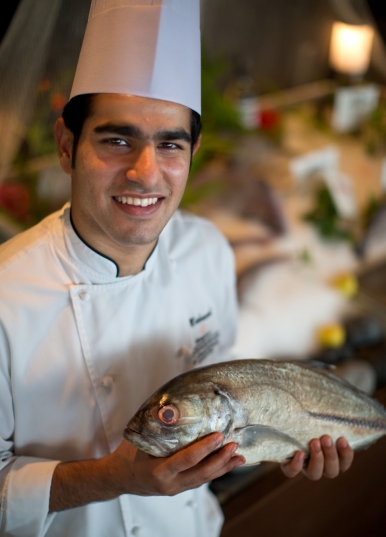
Chef Mahmood Said Humaid Al Shibli explains that both hotel guests and visitors frequent the restaurant because of its famed reputation. “We work hard as a team to develop and perfect our signature dishes to maintain our standards,” he says, citing the smoked and baked cod with saffron cauliflower crush and a wispy foie gras cloud as one of the most popular selections. “All the seafood on offer is caught daily by fishermen, and the menu selection will usually include an assortment of fish, prawn, squid and Omani lobster offerings.”
Entrepreneurs Lead The Culinary Wave
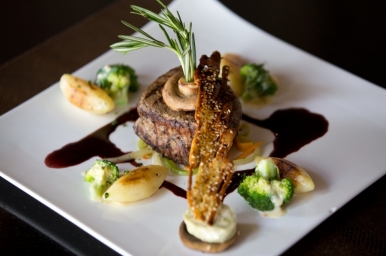
Although you can’t go wrong with tasty traditional fare, there’s a trend in Muscat for the new and different, reflecting changing lifestyles and attitudes. Khalid Al Suwaid, 24, is leading the culinary wave. Founder of Love at First Bite (facebook.com/bitelounge), Oman’s first themed restaurant, Khalid was just 22 when he opened the unique diner. Since then, the movement has surged with new themed eateries (a jungle-themed restaurant and a cave-inspired eating complex), catering to a crowd hungry to enter a fantasy realm.
“I’ve always thought entertainment and dining should be one,” Khalid explains while bouncing through his rambunctiously furnished restaurant where beds are tables and corners are Bedouin tents. The food is a fusion of many cultures, and the names of the menu items are reflective of the quirky-cool concept. Fries come with ‘benefits,’ She Loves Me Not is a medley of sweet and chilli flavours, and there is even a ‘break-up’ dish. “We want customers to enjoy reading the menu. And they do. They even enjoy reading the bill,” he laughs.
Although Khalid opened the restaurant with no background in hospitality, he is one of Muscat’s most successful entrepreneurs and is due to open two more restaurants come November – another themed eatery and a traditional Omani restaurant that will also double as an art gallery. “I just love what I do,” he says, smiling as he watches a love-struck couple perusing the menu and giggling. “Muscat is ready to be different and I’m here offering exactly that.”
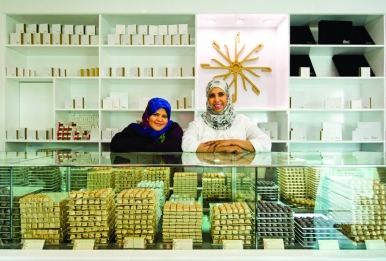
Different works brilliantly in a city full of people receptive to new ideas. Salma Al Hjari and aunt Aisha Al Hajri of Salma’s Chocolates (salmaschocolates.com) spent years studying how to create speciality chocolates that have got everyone talking. Like Khalid, the duo were inspired by the desire to present residents with something they hadn’t tried before, and since both were passionate about sweets, they decided to make chocolates, something not previously done in Oman.
With no classes available in Oman, they started by reading books, then travelled to Dubai, India, Lebanon and Italy to complete chocolate-making courses. Ascertaining that high-quality chocolate was crucial for success, they journeyed to Belgium to negotiate with world-class suppliers. Then they created fusion chocolates by using top-grade Belgian chocolates and local Omani ingredients such as honey, thyme and pomegranates.
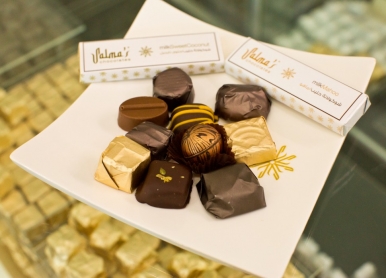
“Our speciality is native flavours and that’s what makes us unique in Oman,” Aisha explains, grinning as she observes an expat tasting one of their creations. “That’s the halwa flavour. It’s one of our most popular chocolates and visitors love it because halwa is Oman’s famous traditional sweet.” The blissful customer goes in for another bite, not aware she’s being watched. Sweets are after all Oman’s forte.
